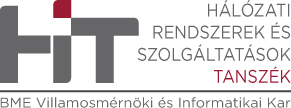6transperf: Implementation of a Benchmarking Program for IPv6 Transition Technologies
The topic is for MSc students on English programs. (Angol nyelvű MSc képzés hallgatói számára szóló téma.)
During the ongoing process of the transition from IPv4 to IPv6, the two systems have to cooperate. There are several possible scenarios for the cooperation, and usually multiple solutions (with several different implementations) exist for the same problem.
RFC 8219 has defined a standard benchmarking methodology for the performance analyis of IPv6 transition technologies. As for DNS64 servers, there is an RFC 8219 complient tester, dns64perf++ [1], which is a free software. For more information, please refer to [2].
The applicant should choose one of the 5 most important IPv4aaS (IPv4 as a Service) technologies (464XLAT, DS-Lite, Lw4o6, MAP-E, MAP-T), and then design, implement, test and also document an RFC 8219 compliant Tester program for benchmarking the selected technology. The design considerations as well as the source code of dns64perf++ may be used, but the Tester should be implemented using the Intel Data Plane Develpment Kit (DPDK) due to performance requirements. The Tester should be published under a free software licence (e.g. GPL) in a public repository (e.g. GitHub).
This topic is suitable for a presentation at the Students' Scientific Conference (TDK) and/or writing an MSc final project thesis, and the topic is worth choosing if you have such intention. If the quality of the work is good enough, then the supervisor plans to write a common publication with the student (as it has happened with dns64perf++ [2]), which can be a significant advantage for the student (e.g. in case of PhD studies).
References:
[1] D. Bakai, "A C++14 DNS64 performance tester", dns64perf++ source code on GitHub, https://github.com/bakaid/dns64perfpp
[2] G. Lencse, D. Bakai, "Design and implementation of a test program for benchmarking DNS64 servers", IEICE Transactions on Communications, vol. E100-B, no. 6. pp. 948-954, Jun. 2017. DOI: 10.1587/transcom.2016EBN0007 Full paper in PDF

